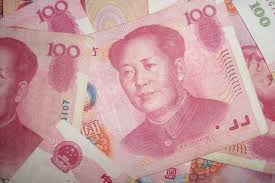The record-high deposit levels of Chinese households accumulated during the Covid pandemic are unlikely to transform into vigorous consumption following the lifting of pandemic-related restrictions, according to the latest research from Bank of China (BOC) International.
In 2022, Chinese financial institutions added a record-breaking 17.84 trillion yuan in new household deposits, for an increase of 7.24 trillion yuan compared to the average reading during the period from 2020 – 2021, just following the onset of the Covid pandemic.
Many analysts consider these record-high excess savings to be the result of the pandemic-related restrictions, and believe that that they could play a pivotal role in driving a rebound in Chinese consumption in 2023.
Guan Tao (管涛), Chief Economist at BOC International, argues, however, that the structural distribution of these excess savings means they are unlikely to serve as a major driver of consumption in months to come.
“The marginal consumption tendency of the main excess savings population is not high,” Guan wrote in a report published on Sina.
“From a structural distribution perspective, excess savings are mainly concentrated in the middle-high income groups with stable income levels.
“On the contrary, the middle-low-income groups with higher marginal consumption tendencies have engaged in greater consumption in the past three years, and may need to re-establish a ‘firewall’ of precautionary savings in 2023 with the normalization of cash flow.
“This may become an important constraint on the current consumption rebound, and targeted measures must be studied in order to resolve it.”
Related stories: China Needs to Step up Consumer Lending as Excess Savings Ride High: Zhongtai Securities




